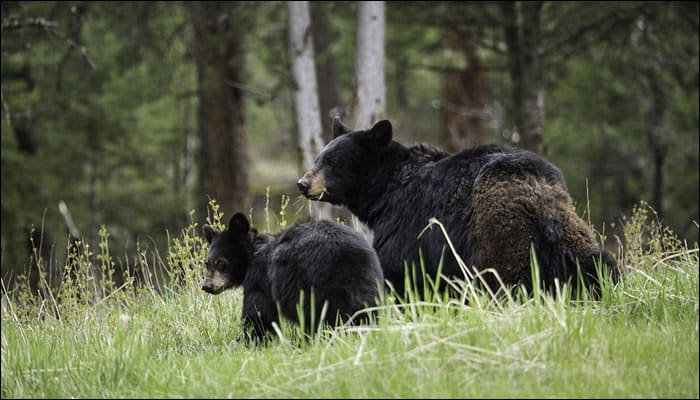New Delhi: After a gap for over 80 years, the black bear has returned to Nevada’s Great Basin in the US through conservation with their population believed to be over 500, a new study said on Wednesday.
The study from Wildlife Conservation Society (WCS), the Nevada Department of Wildlife and the University of Nevada-Reno finds that conservation efforts have resulted in successful re-colonisation of black bears into portions of their historic ranges.
In addition to habitat regeneration, public education, investing in bear-proofing communities, reducing conflict rates between carnivores and people and reduced human-caused carnivore mortality rates were the steps initiated jointly by the WCS and the Nevada Department of Wildlife for 20 years to bring them back from certain extinction.
As a result of the efforts, a once negative population growth rate for bears in urban-interface areas became an average annual growth rate of 16 per cent for more than a decade, and re-colonisation of historic ranges in the mountains of the Great Basin ensued.
“This study represents a great partnership between wildlife management and geneticists,” an official statement said quoting Jason Malaney, lead author of the genetic study.
“Wildlife managers deploy long-term field surveys of black bears, collect tissue samples along the way that are then used to better understand the complexities of re-colonisation. This results in improved management outcomes.”
The authors of the study conclude that based on their results, black bears in the western Great Basin appear to currently maintain levels of connectivity between various mountain ranges that are sufficient to prevent genetic bottlenecks following recolonisation.
Further, black bears in the western Great Basin best represent a genetic metapopulation, a group of populations separated but of the same species with individuals that interact with other populations.
As the human-footprint expands over time in the region, this level of genetic connection among various mountain ranges may not last without conservation efforts to maintain connectivity, says the study.
“The recovery of large carnivores is relatively rare globally yet this is the goal of conservation,” said WCS Conservation Scientist Jon Beckmann.
“Understanding the mode of recolonisation and its genetic consequences is of broad interest in ecology and critical to successful conservation programs.”
The study ‘Natural rewilding of the Great Basin: Genetic consequences of colonisation by black bears (Ursus americanus)’ appears in the current edition of Diversity and Distributions.
IANS

